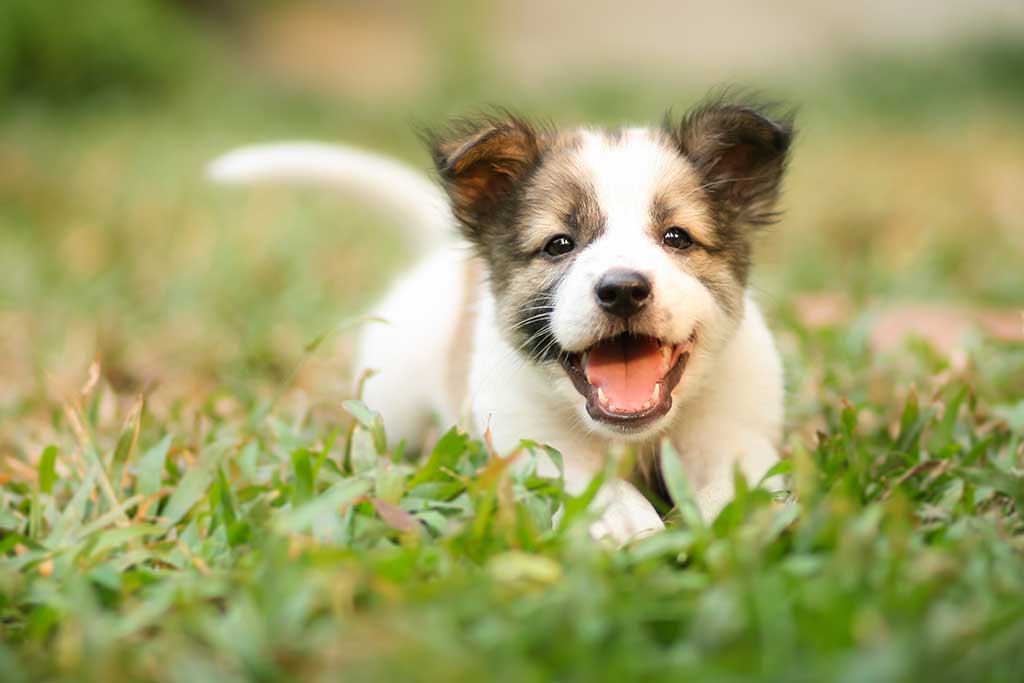Your Puppy Survival Guide
January 6, 2022Everything You Need to Know for the First Few Months with a Puppy

You’ve had your eye on that adorable puppy for a long time now, and the day you have been waiting for is finally here! The first few months of having a puppy can be some of the most wonderful moments of your life. However, just like any first-time experience, there are bound to be challenges and learning curves you will have to navigate. You’ll be introducing your pup to a completely new environment, daily routine, and even some new furry friends. All of these are things to take into consideration when you get a new puppy.
Now with all this information, you may be starting to feel some nervous jitters. Don’t worry- that’s normal! The good news is that we’ve created a special ‘Puppy Survival Guide’ to help make the first few months with your furry friend easier.
Before You Bring Your Puppy Home
Preparation is key for bringing a puppy into your home. Make sure your house is well-equipped to handle your new furry friend and it will make for a much smoother transition. First, get your puppy their own water dishes and food bowls. There’s no need for the pup to use your dishes! Also make sure you have a dog bed and lots of new dog toys! Even if you already have a pet at home, making sure your new pet has their own toys will help them feel welcome.
Another tip is to make sure that the dog food and training treats you have picked out are approved by The Association of American Feed Control Officials (AAACO). Remember, food for puppies has a different formula than adult dog food, so be cautious when purchasing new food and treats for your puppy!
Now let’s move onto the crate. The best crate for puppies is one that not only fits them, but also gives them enough room to move around. That said, we recommend buying a larger crate and placing a divider inside it while crate training. As the puppy grows in size (this is especially true for larger breeds), all you have to do is to remove the divider and save yourself the trouble of having to buy a new crate altogether.
Assimilating Your Puppy into Your Household
Being in a new environment with new sights, smells , and surroundings can be overstimulating and may cause your pup to become hyperactive. To help your pet settle into their new home, make it as comfortable as possible. Let your puppy explore and wander around freely while keeping a close eye on them. This will also help with the training period for establishing boundaries and helping your pup learn where they can and can’t go in the house.
Introducing Your Puppy to Your Other Pets
Introducing a new puppy to other pets in your home can be tricky. That’s why it’s best to do it in a neutral territory like a dog park or a friend’s backyard. Be sure to observe cues and responses from both of your furry friends. Allow your dog to make the first move and approach the puppy during the first meeting. Once they have been introduced, segregate and designate a space for their personal crate and belongings.
Introducing your puppy to your cat, however, is different because they are two different species. The introduction should be as slow and relaxed as possible. Puppies are naturally energetic and excited at the sight of a new furry friend, so they may overstimulate your cat . Allow your cat to approach your puppy with the puppy on the leash; this will let you have more control over the interaction. Keep in mind that your cat might be uninterested in the puppy; that’s normal. It is important, however, that you do not force any interactions. Instead, allow your cat to acclimate to the new energy and give it time. To better facilitate this, we recommend providing your cat with spaces to ‘escape’ to and decompress. This could be a tall cat condo or a dedicated room in the home..
Potty Train Your Puppy
Potty training new puppies Teaching] your can be challenging but with consistency, patience, and commitment, it will all work out. ! Start potty training on dog walks by giving them a treat each time they go in a designated area. This will help show them that defecating successfully outdoors brings rewards!
Another pro tip: always remember to bring along your dog waste bags!
Dedicating sufficient time to potty training your puppy will help them become successful in the long run. It will also help keep your home mess-free. Plan a regular routine with designated feeding time, playtime, potty breaks, and crate time. All of these are important to train your puppy to respect boundaries.
Vaccinate Your Puppy
Every dog needs to get their shots. Vaccinations are important, especially if you’re planning on socializing the new pup with other pets. Take your puppy to the vet to make sure they get their shots within the first few months. Also check with your vet to find out how many vaccinations your puppy needs and arrange for future visits if necessary. Now that you have the Puppy Survival Guide, Congratulations! You’re on your way to becoming a fabulous dog owner! Check out our wide range of pet products and toys today to help your new furry friend get settled in their new home!
